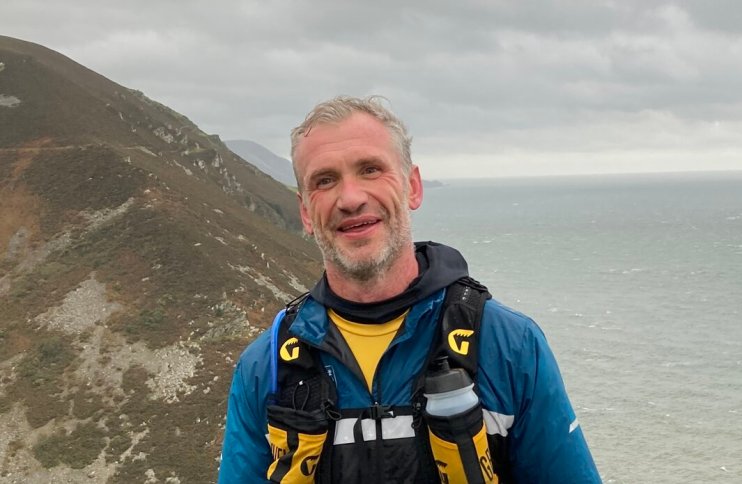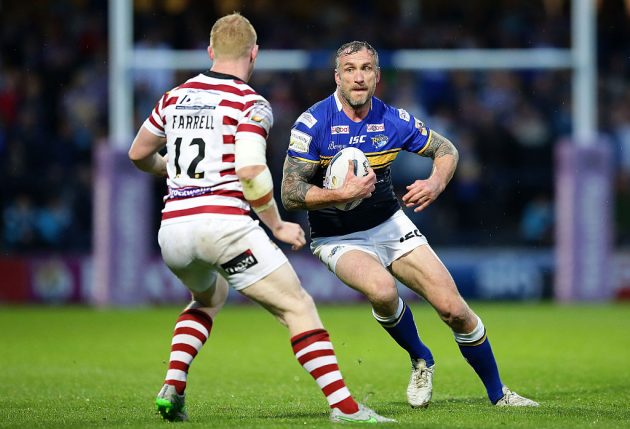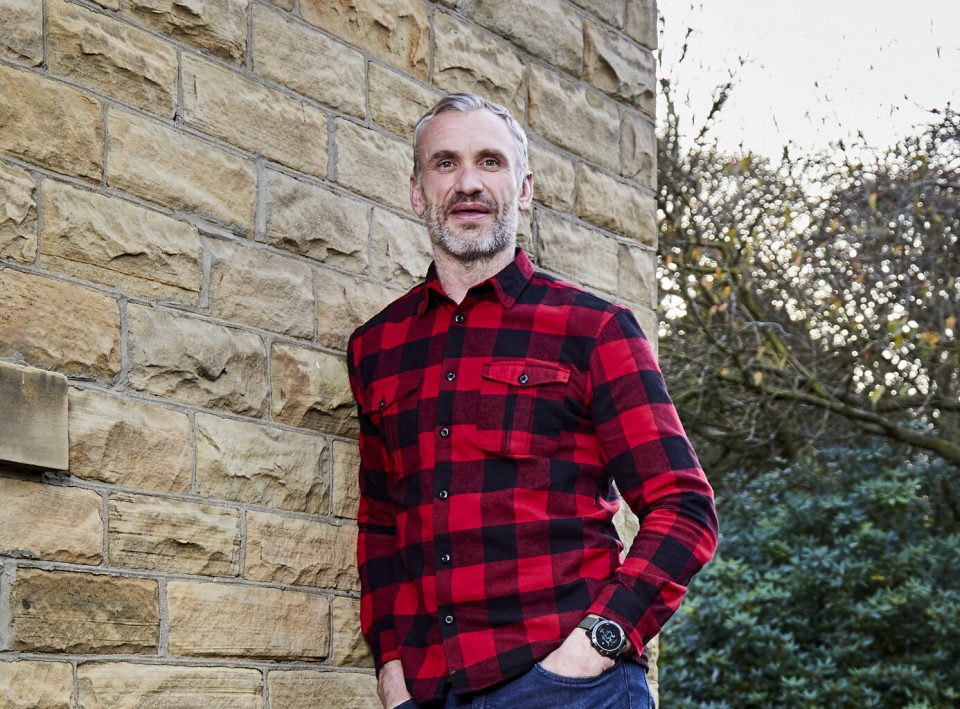Jamie Peacock: Rugby league great on the importance of mindset, ultramarathons, Rob Burrow, and accepting the risk of dementia

“I was never the most physically talented player,” says Jamie Peacock.
It is a remarkable statement from someone who stands 6ft 5in, became a titan of rugby league and won the game’s Man of Steel award.
But it reflects Peacock’s conviction that mentality and character are everything.
“My ability to get the best out of myself physically was down to my mental capabilities,” he tells City A.M.
“Being self-disciplined. Being able to train exceptionally hard and push myself.
“I think we can achieve so much if we believe in ourselves. Sport’s a vehicle to do that.”
Why Peacock is running ultramarathons
Peacock has achieved so much: nine Super League titles, four Challenge Cups and dozens of caps for Great Britain and England, both of whom he captained.
Nowadays the 42-year-old tests that formidable mindset by taking part in ultramarathons for causes close to his heart.
Two months ago, he braved Storm Alex to complete a gruelling 55km course in Devon and raise more than £50,000 for his old team-mate Rob Burrow, who was diagnosed with motor neurone disease last year at the age of just 37.
Peacock’s next race is the Green Man Ultra around Bristol in March, when he will run in support of Greenhouse Sports, a charity that works with underprivileged children.
“I like the fact that you push yourself and challenge what you can accomplish as a person. Ultramarathons are a great test of that,” he says.
“For me, as much as anything, it’s a good way of dealing with retirement. Because every week in professional sport you have a challenge to overcome and it’s good to be feeling that you’re doing something epic — whether it’s trying to win a trophy or a Grand Final.”
Standing by Rob Burrow
The importance Peacock places on character is clear when discussing Burrow, who he played alongside for nine years at Leeds Rhinos.
“If you just want to associate with people you played sport with when you win things, then you’re not a team-mate, you’re a work acquaintance,” he says.
“Team-mates stand by other team-mates when times are difficult and want to try to help them. That’s all I want to do with Rob.”

Burrow’s cause received wider attention last month when fellow team-mate Kevin Sinfield raised more than £2m by running seven marathons in seven days.
“It was the perfect challenge in terms of difficulty; the perfect person doing it; and the best cause,” says Peacock, who joined Sinfield for a short section of the route. “It’s incredible what he’s done and the money raised has been spectacular.”
‘If I get dementia, I’ll pay that price’
Recent developments in other sports mean Peacock must accept that he, too, could be visited by serious illness at a relatively young age.
Former rugby union and football players are developing dementia more readily and earlier as a result of head trauma. Rugby league seems sure to be affected too.
“If I get early-onset dementia then I’ll pay that price, because I knew what I was getting involved in,” he says.
“I’m not stupid, I know what concussions can lead to, and as I got towards the back end of my career there was more discussion about that. I could have chosen to retire and I didn’t.”
Tighter rules around concussion protect players better now, he says, and collision sports will always carry a degree of danger..
“I think you’ll get to a situation where you have to accept a level of risk if you want to play rugby league and if you don’t then don’t play it,” he says.
Helping poor children achieve more
Just as firm as his belief that mindset helps sport is Peacock’s faith that it works the other way, too.
That is why he is supporting the work of Greenhouse Sports, which places coaches into schools in deprived areas.
Those coaches also act as mentors to children who would otherwise be at risk of being left behind by the system.
Research has proven that children helped by the scheme attend school more often, improving their life chances.
“I just felt the values align with mine,” he says. Peacock believes it is even more important after a year in which schools and sports clubs have had to close.

“Given the last 10 months I think it’s been really challenging for kids growing up in tougher socio-economic backgrounds because sports clubs and school are their respite and often where they learn some great values in life.”
As a child, Peacock took cues on how to act from older players at his rugby club. Now the likes of him and England footballer Marcus Rashford are setting the example.
“It’s important that sportspeople realise that they are role models, whether they like it or not, and I think Rashford’s been a wonderful example of that.
“I think sport has to do it. The children of the UK need it. There’s been so much neglect, how poorly it’s been handled in terms of students being able to get out there and be active.”
Using sport to adapt a business
The pandemic has also forced Peacock to adapt his mentoring and speaking business.
“It’s been a big challenge,” he says. “I went from having a really busy business to it all nearly disappearing overnight.”
In-person sessions switched to Zoom and Microsoft Teams, while Peacock also drew up some wellbeing programmes for clients.
He says his experiences as a player helped him to adapt. The power of sport and that mindset again.
“I think I was lucky. Because I’ve been involved in sport for 20 years you’re always dealing with circumstances changing,” he says.
“You can prepare as best you can but what actually happens on the field is often quite different to what you planned for.
“That ability to adapt and overcome was really useful. So it came quite easy when the world changed.
“I’m grateful that sport has taught me that ability to be resilient and overcome any situation.”
Greehouse Sports is committed to using sport to help young people living in inner cities to realise their full potential. You can sponsor Jamie by following this link.
